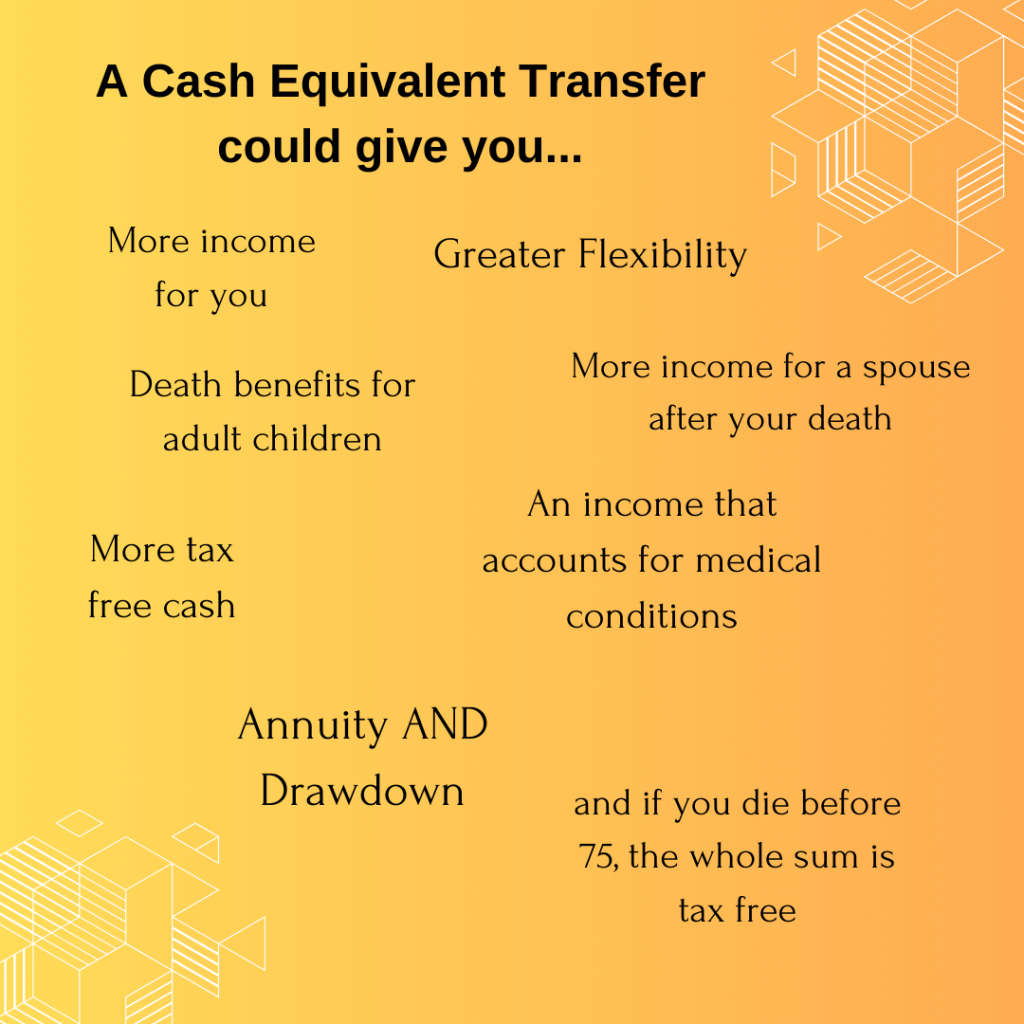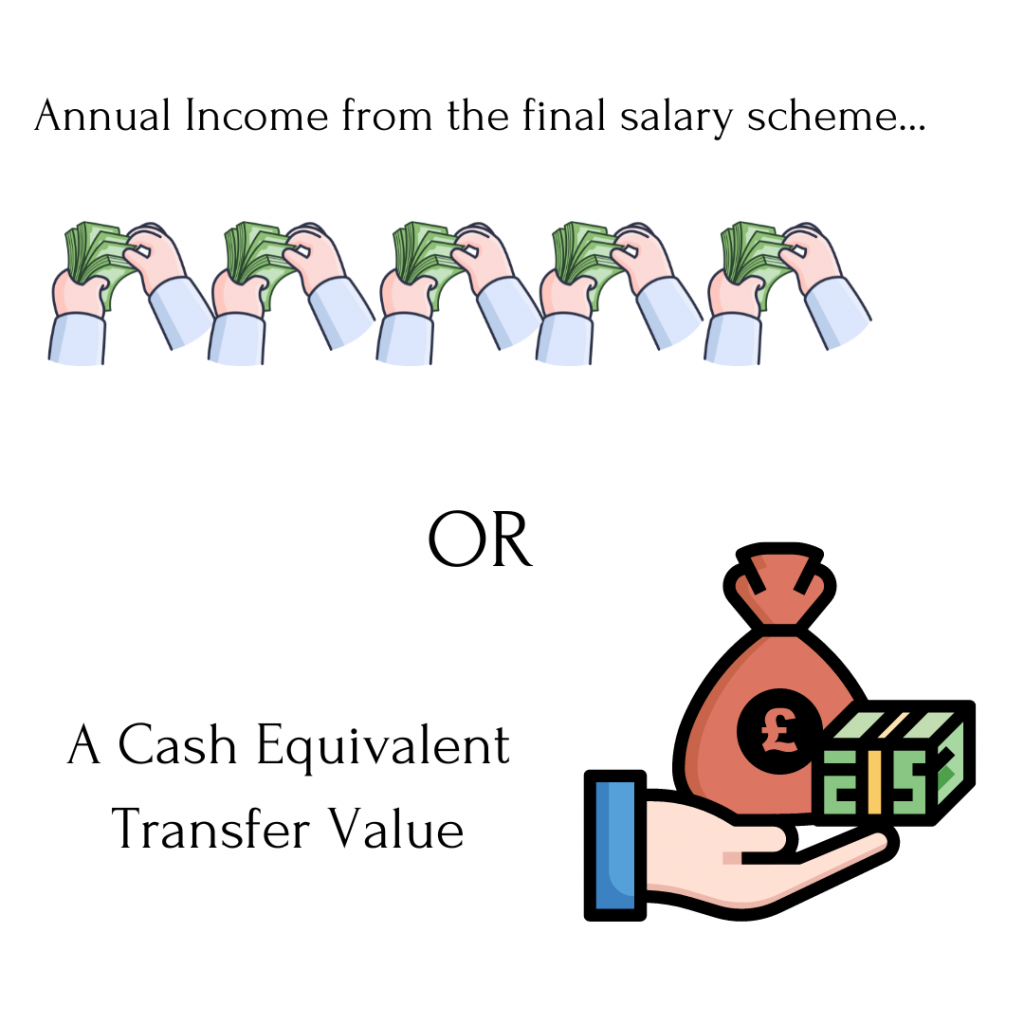Defined benefit schemes and ill health pensions
Defined benefit schemes, also known as “final salary scheme” pensions, are fantastic pensions as they provide a promised income and a tax-free lump sum and there are limited risks to it’s members. If you have a defined benefit scheme and find yourself unable to work due to illness, then there are a number of number of options.
The scheme my have a rule that to claim a pension before 55 it is based on your inability to do:
- Your own occupation
- A suitable occupation
- Any occupation
The “any occupation criteria” could be quite strict. If you’ve had a physical job which you can no longer do, the scheme may not give you a pension early if they think you could work in an office.
- How much it pays will depend on your benefits
- Some schemes may increase the benefits if you take it on medical grounds if you’re still paying into the scheme
- Some schemes do not apply a reduction if you’re too ill to work
- Some schemes reduce the benefits if you take them early even on medical grounds
Even if you are over 55 it is sometimes worth applying to take benefits from the scheme on medical grounds if they don’t reduce the income for taking it early. But there are also some schemes you cannot transfer, such as Teachers Pensions and the Civil Service Pension.
Defined benefit transfer and ill health pension
It is often possible to ask a defined benefit scheme pension for a transfer value. So instead of a pension from the defined benefit scheme you can have a cash sum that you can transfer to a personal pension. But why would you do that? Let’s look at the structure of a typical final salary scheme. It would normally provide:
- A promised income that is payable for the rest of your life
- It will usually have some sort of inflation protection, meaning it will go up each year (though there are some circumstances this doesn’t apply)
- The option to take a tax free lump sum
- A pension payable to your spouse, should you die before them, typically, the average 50% of your income – but can be as high as 66%
- A 5 year guarantee period – once it is being paid, it will be paid for at least 5 years, meaning if you die after year 1, it will continue being paid for another 4 years.
If you are in ill health, and you have been told your life expectancy has been reduced, the promise of a lifetime income, and a reduced amount to your spouse after your death becomes less attractive. Especially if you both die shortly after the pension starts, there are often no benefits for adult children.
The good news is, there are alternatives to keeping a final salary pension.
If you are a member of a final salary scheme it is usually possible to take what is known as a “Cash Equivalent Transfer Value (CETV)”. These are free to ask the scheme to provide, and are good for seeing how much your pension income is “worth”. Of course, there is no obligation to proceed with a transfer, once you have a CETV.
This means that in exchange for giving up all your rights in the final salary scheme, you are offered a transfer value which represents the true “worth” of these benefits and you are able to put them into a personal pension.
In simple terms, what this means is if you have a promised income of £10,000 per year, the scheme will look at that and do very complicated calculation filled with assumptions and say that is “worth” the equivalent of £200,000*, for example.
*Please note these figures are not accurate, they are purely for illustrative purposes. There are a variety of considerations and calculations made when providing transfer values so the reality is this figure could be higher or lower.


So instead of an annual income, you would have a large sum put into a personal pension.
The advantage of a personal pension is that you can take an immediate lump sum and an income. The benefits are based on the amount of the transfer value and you would have some flexibility in your decision on how to take the benefits. Another advantage is, you are no longer bound by the final salary scheme rules.
One of the big questions to ask, using the the example above, if you were to die after 5 years, would your spouse be better off with £5,000 (maybe £6,600 per year), or £150,000 in a pension? This is assuming you have taken £10,000 per year out, over 5 years.
For most people a transfer would not be deemed suitable, as final salary pensions are “gold plated” schemes, however, if you are in ill health, there are reasons to look at transferring.